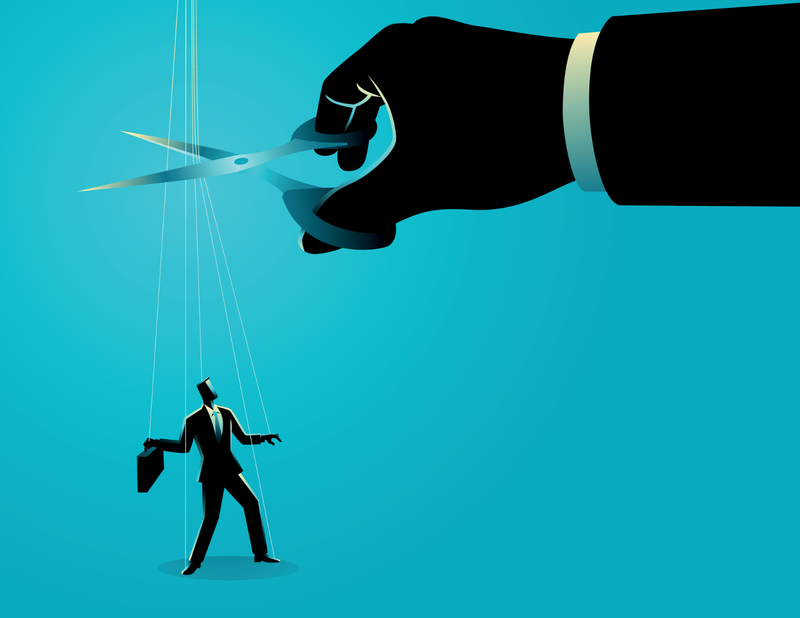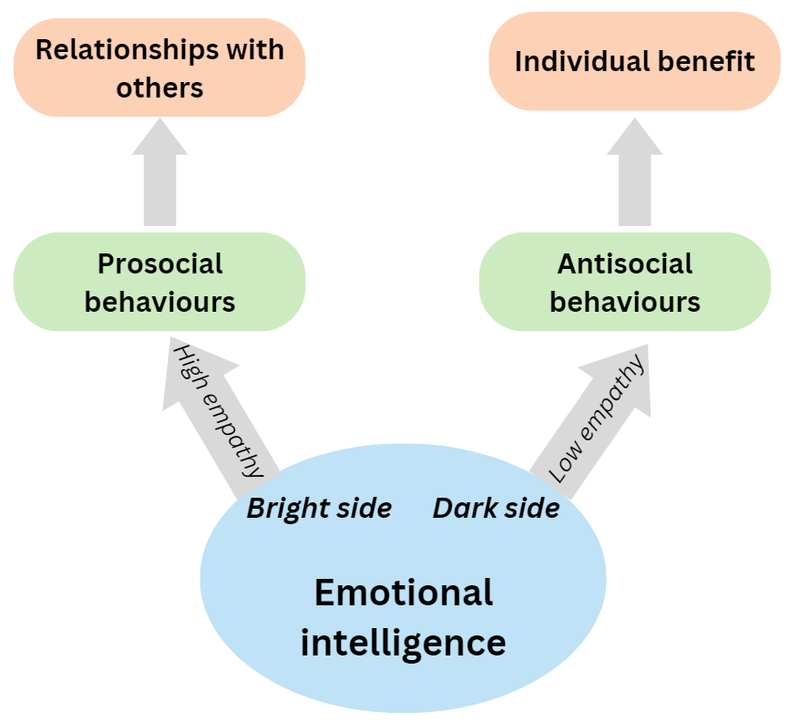Navigating through life, we encounter various personalities, some of which leave a lasting impression due to their lack of kindness. Unkind individuals often exhibit behaviors that are hard to overlook, leaving those around them feeling undervalued and frustrated. Understanding these common traits can help us set boundaries and foster healthier interactions. Here, we delve into the world of unkind behaviors, spotlighting tendencies that many experience but few address openly. From manipulation to incessant criticism, these actions are often subtle yet impactful, creating an environment of negativity and discomfort. Recognizing and understanding these traits can empower individuals to protect their emotional well-being.
1. One-Upping Conversations

In any gathering, there’s often one who constantly one-ups others. Picture this: a jovial tale shared, only to be outdone by a grandiose story from someone eager to take the spotlight. Their need to overshadow can leave others feeling inadequate.
It’s not just about sharing experiences; it’s a competition to them, and they must win. Others may find themselves retreating, hesitant to share.
Their stories often border on implausibility, yet they pursue validation, unaware of the disconnect they’re creating. This behavior fosters resentment, pushing people away rather than drawing them closer.
2. Playing the Victim

Some individuals have a knack for turning any situation into a tale of woe. They are the perennial victims, never at fault and always misunderstood. When confronted, they deflect, spinning narratives where they are wronged.
Their tales evoke sympathy initially, but the pattern grows tiresome. Friends and family may find themselves drained, constantly offering support but receiving none in return.
This behavior stifles genuine connection, as relationships become one-sided. By refusing to take responsibility, they hinder personal growth, remaining stuck in a cycle of blame and self-pity. It’s an exhausting dynamic for all involved.
3. Offering Backhanded Compliments

Backhanded compliments are an art form for some. “You look great for your age!” might seem harmless but cuts deep. These remarks often come wrapped in a smile, but their sting is undeniable.
The recipient is left questioning the intent, caught between gratitude and insult. This subtle undermining chips away at self-esteem over time.
Such individuals wield words like weapons, using charm to disguise the blow. It’s a tactic that breeds insecurity, leaving those on the receiving end wary and doubtful of any future praise. Authenticity is sacrificed at the altar of wit.
4. Excessive Gossiping

Gossip is the currency of those who thrive on drama. It’s the whispered secrets exchanged over coffee, the hushed tones of judgment. For some, life isn’t complete without dissecting the affairs of others.
This creates a web of mistrust, where nothing is sacred and all is game for discussion. Relationships become fraught with tension as individuals wonder what’s being said when they leave the room.
Though it might seem harmless, gossip erodes trust, turning confidences into commodities for entertainment. Such behavior fosters an environment where loyalty is scarce, breeding suspicion and discord among friends.
5. Being Overly Critical

In a world where flaws are magnified, the overly critical thrive. They’re the first to point out errors, often missing the beauty in imperfection. Their critiques are relentless, overshadowing achievements with fault-finding.
This unyielding scrutiny can be demoralizing, leaving others feeling inadequate. It’s a dance where praise is scarce, and judgment is abundant.
Such individuals mask their insecurities by projecting onto others, yet they rarely self-reflect. Relationships suffer as warmth is replaced with a constant need for validation through critique. The impact is a chilling effect on creativity and expression.
6. Manipulating Situations and People

Manipulators are the puppeteers of human interaction. They twist facts, playing on emotions to control outcomes. Often, their influence is so subtle that others remain blissfully unaware.
It’s a game of chess, where each move is calculated to achieve desired ends. Trust is eroded as loyalties shift, leaving confusion in their wake.
This behavior creates an environment of unease, where motives are questioned, and sincerity is suspect. Manipulators thrive on instability, guiding situations to benefit themselves while others bear the consequences. It’s a dance of deception that few recognize until it’s too late.
7. Refusing to Apologize

In the realm of relationships, a sincere apology can mend fences, yet some refuse this potent balm. They stand firm, even when in the wrong, dismissing others’ feelings in favor of pride.
Their inability to admit fault speaks volumes, revealing a lack of empathy and respect. This obstinacy turns minor disputes into lasting rifts, where hurt festers rather than heals.
For those affected, it’s a lesson in emotional resilience, often choosing peace over resolution. The refusal to apologize becomes a character trait, one that alienates rather than unites, fostering distance where closeness once thrived.
8. Shifting Blame

Blame-shifters are adept at dodging accountability. When challenges arise, they deftly redirect scrutiny away from themselves. Mistakes are never theirs; instead, others bear the brunt of responsibility.
This tactic creates a hostile environment, where teamwork is undermined by suspicion. Colleagues grow wary, fearing retribution for decisions beyond their control.
Such behavior stifles growth, as lessons go unlearned and history repeats. By refusing to own their actions, blame-shifters limit their potential, trapped in a cycle of evasion. Their partnerships are marred by distrust, and progress is stunted by their unwillingness to face reality.
9. Being Inconsistent

Inconsistency breeds anxiety, as unpredictability leaves others walking on eggshells. One moment, they’re affable and charming; the next, distant and cold. This erratic behavior creates instability in relationships.
For those around them, it’s like weathering a storm without an umbrella. Expectations are dashed, and trust is fragile, as others never know which version they’ll encounter.
Such inconsistency can be a mask for deeper issues, yet its impact is felt keenly by all who rely on them. Bonds weaken as reliability crumbles, fostering an environment of uncertainty and caution. Clarity is sacrificed in favor of chaos.
10. Craving Constant Attention

Some individuals view attention as a necessity rather than a luxury. They dominate conversations, eager for validation and applause. Others become players in their narrative, expected to support rather than share.
Such behavior fosters resentment, as constant attention-seeking overshadows genuine interaction. Moments meant to be shared become one-sided performances.
This craving is often rooted in insecurity, a need to fill voids left by self-doubt. However, it creates imbalances in relationships, where dialogue becomes monologue. Genuine connections are stifled, as the spotlight rarely shifts, leaving others in the shadows.
11. Giving the Silent Treatment

Silence can be a powerful tool, wielded by those who use it to control and punish. The silent treatment is a passive-aggressive tactic, leaving others in emotional limbo.
For recipients, it’s a waiting game, filled with uncertainty and hurt. Communication halts, replaced by an echoing void where words once flowed.
This behavior undermines relationships, as resolution is replaced by resentment. By withholding dialogue, they create a power imbalance, leaving others scrambling for understanding. The silent treatment disrupts harmony, fostering isolation rather than connection.
12. Playing Mind Games

Mind games create a labyrinth of confusion, where clarity is elusive. The game is subtle, with mixed signals and half-truths leading others astray.
It’s a dance of manipulation, where sincerity is cloaked in ambiguity. Trust erodes as individuals are left guessing, unsure of the ground they stand on.
Mind games disrupt harmony, replacing openness with doubt. For those caught in their web, the uncertainty breeds frustration and disillusionment. Relationships suffer as genuine connection is sacrificed for control, leaving a trail of mistrust in their wake. Clarity becomes a rare commodity.
13. Constant Complaining

Every silver lining, it seems, has a cloud for some. Constant complainers focus on problems, overlooking solutions. Their lens magnifies flaws while dismissing beauty.
This outlook drains those around them, as positivity is overshadowed by negativity. Conversations become a litany of woes, leaving little room for joy.
Such behavior can be contagious, spreading discontent like wildfire. Friends and family may find themselves retreating, seeking respite from the gloom. Relationships are tested, as constant negativity breeds fatigue, pushing away potential allies in the search for happiness. Optimism is a casualty of their perspective.
14. Showing Ingratitude

Gratitude is a gift that some rarely give. Instead, ingratitude takes its place, diminishing efforts and leaving others feeling unvalued.
This lack of appreciation creates a void, where kindness goes unreciprocated. Relationships suffer as efforts feel futile, leading to resentment over time.
Ingratitude erodes bonds, as those who give tire of being taken for granted. Connections weaken, and generosity wanes, replaced by reluctance. For those on the receiving end, it’s a lesson in unmet expectations, cultivating a mindset where appreciation becomes rare. The cycle of giving and receiving falters, leaving emptiness in its wake.
15. Making Everything About Themselves

In the theater of life, some see themselves as the lead, and everyone else mere extras. They steer every conversation back to themselves, eager for the spotlight.
This self-centeredness alienates, overshadowing others’ experiences and contributions. Dialogues become monologues, where participation is limited to listening.
Such behavior creates an environment where others feel invisible, their voices drowned out by the constant self-focus. Relationships suffer, as genuine interaction is sacrificed in favor of personal narrative. It’s a lonely stage, with only one star, leaving meaningful connection a distant dream.

Well, hello there!
My name is Jennifer. Besides being an orthodontist, I am a mother to 3 playful boys. In this motherhood journey, I can say I will never know everything. That’s why I always strive to read a lot, and that’s why I started writing about all the smithereens I came across so that you can have everything in one place! Enjoy and stay positive; you’ve got this!

